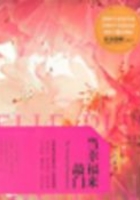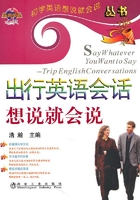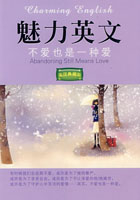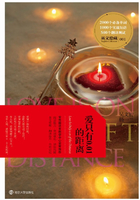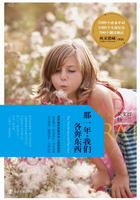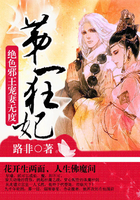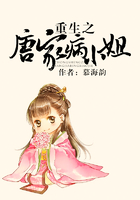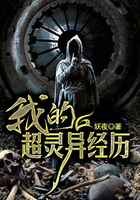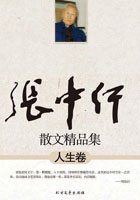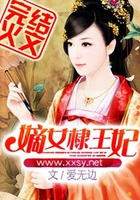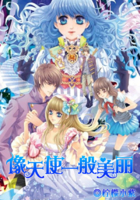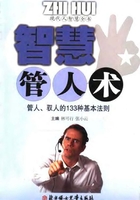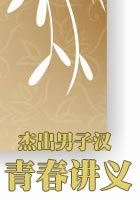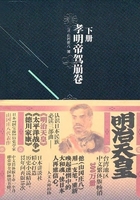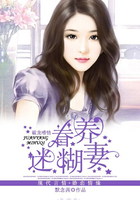春天给世界带来了温暖和色彩。新叶花蕾又长出来了;鸟儿在树丛中欢歌雀跃;田野从沉睡中苏醒;冰雪融化,流水潺潺。
夏季,天气炎热,树叶变成了深绿色;太阳烤人,热气难忍。
秋季,果实都已成熟,所有的庄稼都在等待着收割。在农村,金黄色的果树和田野随处可见;果实的甜美和庄稼的芳香随处可闻。
冬天对于田野和河流来说,是一个放松休息的季节;冬天除了给我们带来冰和雪,还给我们带来新年。
A:We all know that a year is divided into four seasons.As the seasons change,so do temperature,weather and the length of daylight.A:众所周知,一年分为四季。季节变换,气温、天气以及白昼的长度也会随之而改变。B: Yes.“Season” also means a period of time marked by a certain activity or a large quantity of a certain product,for example,the rainy season,the strawberry season.Or ,for the football fans,the football season.B: 不错。“季节”也表示以某种活动或某种产品大量涌现为特征的时期,比如说雨季、草莓季节。又如对于球迷来说是足球赛季。A: Well,fruits are best and cheapest in season.But hotels cost more in season.That's why some people take their holidays out of season.A: 唔,当季的水果最好也最便宜。但旅游旺季的旅馆就比较贵了。这就是为什么有些人选择淡季去度假。B: You're right.Spring is the first season of the year.In spring,nature awakens: flowers blooming,trees putting forth new leaves,birds hopping and chirping merrily.B: 你说得对。春季是一年中的第一个季节。春天,大自然苏醒过来了:鲜花盛开,树木长出新的叶子,鸟儿欢快地跳跃、鸣叫。A: You know,the Chinese have a spring festival to welcome in a new year.They consider that the whole year's work depends on a good start in spring.A: 你知道,中国人还欢度春节来迎接新年哩。他们认为全年的工作全靠春天有一个好的开端。B: I see.Spring is gay with flowers and songs.So we sometimes describe a very happy person as being full of the joys of spring.B: 我知道。伴着鲜花和歌声的春天是令人快乐的。所以我们有时用充满春天的喜悦来形容一个十分快乐的人。A: Yes.How do you like summer?A: 对。你喜欢夏天吗?B:I think I like it.Summer is hot and the days are long.Many people enjoy taking summer holidays,teachers in particular.Schoolchildren like to attend summer camps.But of course,some hardworking students go to summer schools.B: 我想我喜欢。夏天天气炎热,白昼悠长。许多人都喜欢夏天度假,尤其是教师。学校的孩子们喜欢参加夏令营。但是当然,有些用功的学生会去上暑期班。A: What is an “Indian summer”,do you know?A: 你知道什么是“小阳春”吗?B: Well,summerlike weather sometimes occurs in late autumn or early winter.People call such a period an Indian summer.B: 唔,有时深秋或者初冬出现夏天一样的天气。人们就把这样的一段时间叫做“小阳春”。A: Well,some countries officially change the time at the beginning of summer by moving the hands of a clock ahead of one hour,so as to save daylight.And the period when this is in effect is called “daylight saving time”in America,and “summer time”in Britain.A: 还有,有些国家在夏天开始的时候正式更改时间,将时钟的指针往前拨一小时,以便节省白昼的时间。实行这一措施的这段时期,在美国叫做“daylight saving time”(日光节约时间),而在英国叫做“summer time”(夏令时间)。B: But I don't think it's a good idea.It often makes you confused about the time.B: 不过我可不认为这种做法好。这样人们常常会把时间搞混。A: Neither do I like it.A: 我也不喜欢。
A: Well,many people think that autumn is the best season of the year.Do you agree with that?A: 唔,许多人认为秋天是一年中最好的季节。你同意吗?B: Sure.In autumn,the weather is cool and the sky is usually blue.B: 我当然也这么想。秋天天气凉爽,天空通常是一片蔚蓝。A: And autumn is the season of harvest.In this season,many fruits ripen and the rice or wheat fields look like a golden sea.A: 还有,秋天是收获的季节。在这个季节里,许多水果都熟了;稻田或麦田看上去就像金色的海洋。B: In autumn,leaves turn brown and fall from the trees.That is why Americans call this season “fall”.B: 秋天,树叶变成了褐黄色,从树上落下来。美国人把秋天叫做“fall”(落下)就是这个缘故。A: Yes.You know,when you say somebody is in the autumn of his life,you mean he has reached the latter part of his life and passed his “best”years.A: 不错。你知道,当你说某人正处于人生的秋天时,你指的是他到了生命的后半部分且已经度过了最“美好”的年龄。B: But it's quite common that a person can still contribute to society in the autumn of his life.B: 不过一个人在其后半生的日子里依然能够对社会做出贡献,这是很常见的事情。A: That's quite true.But I think winter is my favorite.A: 说得对。不过我认为冬天是我最喜欢的季节。B: Well,winter sports fans naturally like winter.Skiing,sledging and iceskating are popular with them.Some people even enjoy swimming in the river in the dead of winter.The Winter Olympic Games is a great event in the sports world,you know.B: 唔,热衷于冬季运动的人自然喜欢冬天。滑雪、乘雪橇、溜冰,都是他们喜爱的。有些人甚至在隆冬时分到河里游泳哩。你知道,冬季奥运会可是体育界的一大盛事啊!A: Sure,I know that.I'm an excellent winter swimmer myself,you know.A: 当然知道啦!你知道,我本人可是个出色的冬泳运动员哩。B: Oh,really? Winter is virtually cold,and the days are shorter.Many trees shed their leaves and many birds fly to the south.B: 哦,是吗?冬天可真冷,而且白天也比较短。许多树都落叶了,还有许多鸟儿都飞去了南方。A: And rivers are frozen,fields deep in sleep.But do you know the famous line by P.B.Shelley,an English poet?A: 还有,河流冻结,田野沉睡。可是你知道英国诗人雪莱的一句著名诗句吗?B: Of course I know.That's the last line of the poem Ode to the West Wind: “If winter comes,can spring be far behind?”B: 那还用说。就是《西风颂》里的最后一行:“冬天来了,春天还会远吗?”A: Good.Well,do you know how to define the word “day”?A: 说得好!呃,你知道怎样解释“day”(白天)这个词吗?B:I think the world “day”just refers to the time between sunrise and sunset.B: 我想“day”这个词指的就是日出到日落之间的这段时间。A: What about “daylight”then?A: 那么“daylight”(日光)又怎么说呢?B: That's the light of day,of course.B: 那当然是指白天的光亮啦。A: You know,in summer daylight begins early and fades late.So,when summer comes,some countries and regions officially put summer time or daylight saving time in effect,so as to make the best of the daylight hours.A: 你知道,夏天天亮得很早,日落却很迟。因此,当夏季来临的时候,有些国家或地区就正式实行夏令时间或日光节约时间,为的是充分利用白昼的光阴。B: Well,it sometimes happens that a person or a shop is robbed in broad daylight.And it sometimes happens too that a hotel or restaurant charges its guests far too much.We can compare this to robbery,so we can call it “daylight robbery”.B: 唔,有时候会发生这样的事情:一个人或一家商店在光天化日之下被抢劫。有时候还会出现这样的事情:旅馆或饭店,对客人收费过高。我们可把这种情况比作抢劫,因此我们把它称为是“明抢”。A: Now another expression,you may sometimes be puzzled by some difficult problems in your studies.As long as you really work hard at them,you'll see daylight at the end of the tunnel.A: 还有另一种表达方式,你在学习上可能偶尔会被某些难题难住而困惑不解,但只要你真正用心解答,最后你准会豁然开朗的。
1.We all know that a year is divided into four seasons.
divide into:分成若干较小部分。例:
The house is divided into flats.
那个房子被隔成数套房间。
2.As long as you really work hard at them,you'll see daylight at the end of the tunnel.
as long as:只要。例:
You can go where you like as long as you get back before dark.
你可以随意到哪里去,只要你在天黑以前返回。
暴风雨季节stormy season
北方的冬季northern winter
避暑be away for summer holidays;preventing sunstroke
冰冻季节freezing season
初(/头)伏first of the three tenday periods of the hot season;first day of the first period of hot season
初春early spring
初冬early winter
初秋early autumn
初夏early summer
春意spring in the air;beginning(/awakening)of spring
春光sights and sounds of spring;spring scenery
春光明媚sunlit and enchanting scene of spring
春季spring;springtime
春雷spring thunder
春色spring scenery
春色满园garden full of beauty of spring
春上in spring
春行夏令summer weather in spring
秋收季节harvest season in autumn
淡季dull(/off/dead/low)season
当令in season
登山季节climbing season
冬季winter;wintertime
冬忙季节busy winter season
冬天winter
冬闲季节slack winter season
冬行春令springlike(/very mild)winter
度假季节holiday season
多风季节windy season
二伏second of the three tenday periods of the hot season
繁殖期breeding season
防暑heatstroke(/sunstroke)prevention
伏暑hot season;dog days
伏天hot summer days
瓜季watermelon season
寒冬chilly(/cold)winter
寒季cold season
霜冻的冬天crisp winter
寒秋late autumn
旱季dry season
一、请根据英文解释填出下列单词:
1.spring,summer,autumn,or winter
2.(of weather) hot,airless,and uncomfortable
3.the middle of winter
4.unpleasantly hot
5.a sometimes severe condition of fever and weakness caused by too much heat
6.brightly lit by the sun
7.(of seasons and weather) very cold; severe
二、请完成下列对话:
1.A: It's known to all that there are twentyfour hours in a day.
B: Well,of course.I can even remember a short poem about it: “Twelve good hours in every day,time for work and time for play; twentyfour for(1)(昼夜),some for darkness and some for light.”
A: Very good.However,in such sentences as “He sleeps by day”,“She studies all day”and “They work day and night”,the word “day”just refers to the time between(2)(日出至日落).
B: Yes.The phrase “to the day”looks similar to the phrase “to this day”,but they have different meanings.The former means “exactly”,for example,“I met him three years ago to the day.”The latter means “even now”or “until now”,for example,“To this day I still don't know why he left school.”
A: Now another expression: “To make a day of it”is to spend(3)(整天) doing something,particularly something enjoyable.For example,“Tomorrow's the first day of(4)(寒假).We'll go skiing and make a day of it.”
B: Well,you can say either “day and night”or “night and day”,they mean the same thing.
A: That's true.Some people are active at(5)(晚上).They are fond of(6)(夜生活).Often they stay up until after(7)(午夜).We can call these people “night owls”.
B: And some people think they can do something bad secretly.We can give the following warning to such people,“What is done by night appears by day.”
A: Well,the word “(8)(拂晓)”means the time of day when light first appears or the first appearance of light in the sky before(9)(太阳升起).Some people have to work from dawn till(10)(黄昏) in order to earn a living.They have to go to work at the crack of dawn and cannot come home until(11)(入夜).
B: When “dawn”is used as a verb,you can say,“go to work as soon as day dawns.”
A: But in the following example,the word “dawn”has a different meaning though also used as a verb,“The truth dawned on Fred at last.”You can also use it in this way,“It dawned on Jane that she had taken the wrong train.”
B: You're perfectly right.Well,do you know that(12)(日光),(13)(月光),(14)(星光) and(15)(曙光),they all come from natural sources?
A: Sure,I know that.And lamp light,candle light,laser,etc.are from manmade sources.
B: Good.Now,some expressions with the word “light”,we all know the simple rules of traffic lights.So,obviously,the phrase “get the green light”means “get permission to do something”,and “give somebody the green light”means “give somebody permission to do something.”
A: And,when we say a hidden fact has come to light,we mean it has become known.When we say someone has brought a hidden fact to light,we mean he has made it known.
B: That's right.
2.A: Well,you've been talking a lot about the(1)(季节) and the (2)(日子).Now I think I can summarize the seasons also in a short poem.
B: Oh,really? Come on!
A: “(3)(春季) is gay with flower and song,(4)(夏季) is hot and the days are long,(5)(秋季) is rich with fruit and grain,(6)(冬季) brings snow and the New Year again.”
B: Wonderful! Your poem has shown vivid pictures of the four different seasons of the year.For instance,spring does bring warmth and colour to the world: new leaves and flowers buds appear; birds are singing and dancing among the trees; fields are waking up from their long sleep; ice in rivers is melting and water in it is running merrily…Oh,what a scene!
A: What's more,people are feeling refreshed.They take off their heavy winter clothes and walk with a straight and light steps.They feel they are full of spirits and energy.
B: Women in particular.They are anxious to get rid of those thick and clumsy winter suits and try on their new fashionable spring dress.It's true that they look lovelier and happier in spring!
A: Well,when summer comes,(7)(天气炎热) and the leaves turn darkgreen; the sun is blazing and the air is threatening.No one would like to stay in the open air for long.
B: That's true.In summer,the first place people want to go is a spacious room with airconditioning or a quiet river or swimming pool.I'm one of them myself.
A: Well,farmers like to sit and chat in the shade of a tree while enjoying the occasional gust of(8)(凉风).I myself like very much to listen to the singing of some of the insects,especially the singing of cicadas.
B: Every little boy likes that,I think.Well,you said in your poem that “autumn is rich with fruit and grain.”I think that is true,too.In autumn,almost all fruits are ripe and all crops are waiting to be harvested.You can see golden trees and golden fields everywhere in the countryside,and you can smell the fragrances of orchards and the maturity of crops in the air.
A: And you can hear singing and laughing all about you! People are happy in autumn because autumn brings them harvest and richness and prosperity!
B: Well,I say,winter is(9)(放松的季节),do you agree with me?
A: Well,it's hard to say.For the fields and rivers,winter is a relaxing season,but for farmers,I think they might take a rest physically,but mentally they are still busy with thinking,planning and calculating for the work of the next year.
B: Oh,I see.They have to get everything ready for the next year.Nevertheless,I like to see(10)(冰雪) in winter.I like to breathe in the pure air of the(11)(雪白世界).
A: Aren't you afraid of the bitter
人们的日常生活离不开植物。我们吃的粮食、蔬菜、水果,无一不是来自植物。我们吃的肉、奶、蛋虽然来自动物,可是生产肉、奶、蛋的动物都是靠吃植物才能生存的。因此说,我们吃的肉、奶、蛋,是间接来自植物。至于穿衣用的棉、麻、丝、毛,也是直接或间接来自植物。
A:Well,plants are Man's best friends.Of all the living things of the world,plants are probably the most familiar and most closely related to us man.A:植物是人类最好的朋友。世界万物之中,人类最常见且与人类关系最密切的恐怕要属植物了。B: That's very true.We can actually see plants every minute everywhere.B: 的确如此。我们随时随地都能看到植物。A: Yes.When we go out to the open fields,we can see trees,flowers,grasses and other plants on hills and by the roadsides; we can also see crops,vegetables and fruittrees on farmlands or in orchards.A: 是的。走到田野,我们就可以看到在山坡上和道路旁有树木花草;在农场或果园里有作物、蔬菜和果树。B: You're right.When we are in school or at home,we can also see various flowers and green fences on campus or in the rooms.They are all plants.B: 对了。当我们在学校或者家里,也能在校园或室内看到各种各样的花卉和绿色的围栏。我们所看到的这些都是植物。A: As a matter of fact,not all plants can be seen with human eyes.For example,germs are in the air or on various objects,but they are not easily seen.A: 其实,并不是所有植物人们都能用眼看到。例如,存在于空气中和物品上的细菌,就很不容易被看见。要知道,细菌也算植物。You know,germs also belong to the category of plants.B: Oh,God! Is that really?B: 啊,天哪!真这样?A: Yes.Well,there are still other plants that we can see,but we usually neglect them because of their tiny bodies,such as the moss on dark,moist walls,the molds on rotten fruits and decayed food.They are plants,too.In a word,plants are everywhere we go.Some we can see and some we can't.A: 对。还有些植物,虽然人们看得见,但是由于它们的身体过于微小,并不引人注目,像黑暗潮湿的墙壁上长着的苔藓,腐烂的水果或食物上长着的霉菌,它们也都是植物。一句话,我们不管走到哪里,都有植物。不过是有些看得见,有些看不见罢了。〖〗B: Well,when you say plants and Man are most closely related,it means,perhaps,that we can't live without them,right?B: 你说植物与人类的关系最密切,指的恐怕是我们每时每刻都不能离开它,对吗?A: Yes.Our daily life can't go on without them.Our daily grains,vegetables and fruits,are all plants! The meat,milk and eggs,though come from animals,the animals that produce these things are also living on plants.Therefore,some of the things we eat are from plants indirectly.As for our clothing materials,the cotton,flax,silk,wool,etc.are also from plants directly or indirectly.A: 是的。我们日常生活离不开它。我们每天吃的粮食、蔬菜、水果,无一不是来自植物。我们吃的肉、奶、蛋,虽然来自动物,可是生产肉、奶、蛋的动物都是靠吃植物才能生存的。因此说,我们吃的一些东西是间接来自植物的。至于穿衣用的棉、麻、丝、毛等材料,也是直接或间接来自植物。B: I think our housing and transportation also need plants.We used to build houses,make furniture,produce cars and trucks,erect bridges or even repair ships and boats with wood or boards from plants.Nowadays we have cement,steel and plastic,but we still need wood or boards for some parts.B: 我想住房与交通也离不开植物。过去人们盖房子、制作家具、造车架桥,甚至修船张帆都用植物生产的木材。如今有了水泥、钢铁和塑料,但是其中的某些部件还是离不开木材。A: Well,even medicine can't go without plants.For thousands upon thousands of years,our ancestors cured their diseases with herbs.Herbs are very effective on various diseases,and now they are being commonly used.Nearly all herbs come from plants.A: 还有,病人服药治病也离不开植物。我们祖先几千年来都是靠中草药治疗疾病的。中草药对于多种疾病都有显著疗效,并且现在正在被普遍使用。几乎所有的中草药都来自植物。B: Well,plants are needed everywhere.Plants can make our living environments green and clear.A green environment can not only regulate climates or prevent wind,but also can eliminate pollution,lessen noise and absorb dust.B: 嗯,到处都需要植物。植物能让生活环境变绿变干净。有了绿化的环境,不但可以调节气候,防止风沙,还可以消除污染,减弱噪声,吸附尘埃。A: Oh,that's why people say that plants are best friends of us humans!A: 哦,难怪人们说植物是人类最好的朋友呢!
A: They say life could not go on if there were no plants.Do you agree?A: 人们说,如果没有植物,生命是不能延续的。你同意这种观点吗?B: Yes,I do.Plants are very important living things.This is because plants can make food from air,water and sunlight.Animals and Man can't.You know,animals get their food by eating plants and other animals.Man gets his food by eating plants and animals,too.B: 是的,我同意。植物是非常重要的生物。这是因为植物能从空气、水和阳光中创造食物,而动物和人却不能。你知道,动物是通过吃植物和其他动物来获取营养的。人也是如此。A: Exactly true.So animals and Man need plants in order to live,and this is why we find that there are so many plants around us.A: 非常正确。所以,为了生存,动物和人需要植物,这就是为什么我们周围有如此多的植物的原因。B: Well,if you look carefully at the plants around you,you will find that there are many types of plants.Some plants are large while others are small.Most plants are green.B: 唔,如果你仔细观察一下你周围的植物,你会发现它们有许多种类。一些植物长得很大,而另一些却长得很小。大部分植物都是绿色的。A: Oh yes.I think there are two main types of plants: the first type is flowering plants and the second is nonflowering plants.A: 噢,是这样。我想植物主要有两种:第一种是开花植物,第二种是非开花植物。B: You're right.Almost all the trees around us are flowering plants.Flowering plants have roots,stems,leaves,flowers and fruits.So you can probably recognize some plants from their flowers or their fruits.B: 你说得对。我们周围的几乎所有的树都是开花植物。开花植物都有根、茎、叶、花和果实。因此,也许你可以从植物的花朵和果实上来分辨它们。A: Nonflowering plants do not grow flowers.They include coniferous trees, mosses,algae and fungi.We can't see many nonflowering plants around us.A: 非开花植物不开花。它们包括针叶树、苔藓、地藻类和真菌。我们周围的非开花植物不是太多。B: When you pull out a small flowering plant and look at it carefully,you'll see that one part of the plant is under the ground.This part is called the root system.The part of the plant that is above the ground is called the shoot system.B: 当你拔出一颗小小的开花植物并仔细对它进行观察时,你会发现,植物的一部分长在地下。这部分叫做植物的根系。地面上的植物部分叫做茎枝系统。A: Well,the shoot system is made up of a number of parts: the stem and its branches,leaves,flowers and fruits.A: 唔,茎枝系统是由好几个部分构成的:茎和枝、叶子、花,还有果实。B: Are you familiar with nonflowering plants?B: 你对非开花植物很熟悉吗?A:I know something about that.Most nonflowering plants do not grow from seeds.They grow from spores.You know spores are very,very small.Some spores are so small and light that they can float in the air.We may say that spores are quite similar to seeds.When these spores fall on wet and shady places,they usually grow into new plants.A: 我了解一些。多数非开花植物不是由种子生长出来的。它们是孢生的。你知道,孢子非常小。一些孢子太小,也太轻,能浮在空中。我们可以说,孢子和种子非常相似。当这些孢子落到潮湿阴凉的地方时,它们通常就成长为新的植物了。B: However,coniferous trees are seedproducing plants that have true roots and stems.Their leaves are usually needlelike or scalelike structures.B: 不过,针叶树是结种子的植物,它们有真正的根和茎。它们的叶子通常像针或者鳞片一样。A: And ferns also have roots,stems and leaves.Their stems grow just below the ground.A: 还有,蕨类植物也有根、茎和叶子。它们的茎生在地下。B: Well,mosses only have leaves and stems that are usually erect.They have no roots.They grow in wet,damp places,clinging to tree trunks,stones and walls.B: 唔, 苔藓只有叶子和茎,这些叶子和茎通常都是直立的。苔藓没有根。它们生长在潮湿的地方,紧紧地缠住树干、石头和墙壁。A: Algae are very simple green plants.Their body structure does not have roots,stems and leaves.They also grow on the sides of ponds and on tree trunks.A: 藻类是一种非常简单的绿色植物。它们没有根、茎和叶子。它们也生长在水池旁和树干上。B: Well,fungi are often not regarded as true plants because they are not green and can't make their own food.They get their food from other plants and animals.Mushrooms and molds are examples of fungi.B: 唔,真菌通常不被看做是植物,因为它们不是绿色的,而且自己不能制造食物。它们从其他的植物和动物身上获取食物。例如蘑菇和霉菌。
1.Plants are probably the most familiar,most closely related to us man.
relate to:与……有关系。例:
She is a girl who notices nothing except what relates to herself.
她是一个只注意与她自己有关的事的女孩。
2.When you pull out a small flowering plant and look at it carefully,you'll see that one part of the plant is under the ground.
pull out:拔下;拔出。例:
He pulled out a tree in the garden.
他在花园里拔了一棵树。
3.Fungi are often not regarded as true plants because they are not green and can't make their own food.
regard as:视为;认作。例:
He's regarded as the best dentist in town.
他被认为是城内最好的医生。
苹果apple
杏apricot
杜鹃花azalea
大麦barley
菜豆bean
秋海棠begonia
白桦birch
红橙blood orange
黄杨box
树枝branch
荞麦buckwheat
仙人掌cactus
山茶花camellia
樟树camphor tree
胡萝卜carrot
蓖麻castoroil plant
谷物cereals;grain
樱桃cherry
粟树chestnut
海棠花 Chinese flowering crabapple
菊花chrysanthemum
椰树coco
可可树cocoa
椰子coconut,cocoanut
咖啡coffee
松果cone
棉;草棉cotton
柏树cypress
黄水仙daffodil
雏菊daisy
山茱萸dogwood
乌檀ebony
榆木树elm
昙花broadleaved epiphyllum
桉树eucalypptus
无花果fig
冷杉fir
亚麻flax
银杏树ginkgo
剑兰gladiolus
葡萄grape
落花生groundnut; peanut
山楂hawthorn
铁杉hemlock spruce
大麻hemp
木槿hibiscus
山核桃树hickory
小麦wheat
垂柳willow
一、请完成下列对话:
A: You've learned that all(1)(开花植物) have(2)(根),(3)(茎),(4)(叶子),(5)(花) and(6)(果实).But do you know that flowers are useful to us in many ways?
B: I think I know that.One of the useful ways is that they help us to recognize the different types of(7)(植物) that we find growing all around us.Besides,they can add colour and fragrance to the natural world,can help lessen the tension and pressure of human brain,and…
A: Well,well,well! You are all correct.Now listen to me.Flowers also have different shapes,sizes,and colours.Each flower is attached to the stem by a(8)(花柄).
B: And in some plants,the flowers grow singly while in others the flowers may grow together in a bunch.Do you agree?
A: Yes,I do.Well,most flowers have four parts:(9)(花瓣),(10)(萼片),(11)(雄蕊) and(12)(雌蕊).
B: Right.Now the petals.When you look at a flower,you usually notice the petals first because they are brightly coloured.Different plants have petals of different colours,you know.They attract insects and birds.
A: Well,below the petals,on the outside of the flower,are the sepals.They usually look like small leaves.And they protect the(13)(花蕾).Now,you tell me the male parts!
B: Well,the stamens are the male parts of the flowers.Some flowers have many small stamens while others have only a few.Each stamen has two parts.They are the(14)(花丝) and the(15)(花药).You know,the other,when ripe,produces yellowish powder called pollen.Each pollen grain contains a male cell which can fertilize a(16)(雌细胞).
A: Well explained.Now the female parts.The female parts are found in the centre of the flower.There are three parts.They are the(17)(柱头),the(18)(花柱) and the(19)(子房).The ovary is a swelling at(20)(花基),you know.Inside the ovary there are tiny ovules.Each ovule contains an egg cell.Well,the style is a long thin stalk arising from(21)(胚株).And at the tip of the style is the hairy,sticky stigma.
B: Good.Well,flowers with both male and female parts are called(22)(雌雄同株) .Examples of plants with bisexual flowers are(23)(西红柿、辣椒、旋花类植物和百合类植物).
A: But some flowers have stamens only.These flowers are called(24)(雄性花).Some only have the pistils and so they are called the(25)(雌性花).
B: Well,I know that.The papaya,pumpkin,cucumber and watermelon are examples of plants where the male and female parts are on separate flowers.
A: Perfectly right.
二、完成下列短文:
Most of(1)(世界自然奇观) are so enormous that they seem unreal.Usually,we can understand something new by comparing it to something else we already know and understand.But there is nothing in our experience to prepare us for a Grand Canyon or a Sahara Desert.
Perhaps this is why,among all the world's wonders,some travelers speak with the greatest awe of the giant(2)(红杉) in California's Sierra Nevada mountains.We have known and lived with(3)(树) all our lives,and thus when we look upon the sequoias,we see old friends—even though they are old friends that have grown up to home the largest and oldest living things on earth.
There are thirtytwo(4)(红杉林) in Sequoia National Park.They are in many ways much like other groves of trees in a forest.They are quiet,the ground soft beneath your feet,the sounds of small animals faints in your ear.But when you look up,the giant trees soar endlessly toward the sky,and when you look around,the trees amaze you by their size.
The greatest of the giant sequoias is the General Sherman.It is 272 feet tall,with a(5)(主干) 37 feet in diameter.It has been estimated that there is enough(6)(木料) in this tree to build a fortyfiveroom house.It is the most massive single example of life on our earth.It has been growing for thirtyfive hundred years,and it's still growing!
There are taller trees than the General Sherman.The very tallest,the(7)(红木树),are also in the redwood family and are found along the California coast.They rise as high as 367 feet.
There are also broader trees than the General Sherman.The famous(8)(榕树) of Calcutta for example,covers acres of land.And even some of the great sequoias have larger bases.
What distinguishes the General Sherman is the fact that as it rises into the air,its trunk hardly tapers at all.It is of a piece,the monarch of all trees,which has endured wind and storm and forest fire,while people's greatest monuments have turned to dust and ashes.
For the giant sequoias are made to last.Their wood is hard.Their(9)(树皮) is as much as three feet thick and is extremely fireresistant.Sometimes forest fires have managed to eat their way into
在生物世界里,有植物、动物和人类。植物是属于称作植物王国的群体,而动物和人则属于称作动物王国的群体。看看周围,你会看到许多不同的动物。有些动物很小,有些非常大;有些动物的身体又软又长,而有些则又硬又圆。所以,在某些方面相似的不同动物被归为一类。
A:In our world of living things we have plants,animals and people.Plants belong to a group called the Plant Kingdom while animals and people belong to the Animal Kingdom.A:在生物世界里,我们有植物、动物和人类。植物是称作植物王国的群体,而动物和人则属于称作动物王国的群体。B: You're right.Look around you and you will see many different types of animals.Some animals are tiny while others are very large.Some animals are soft and long,while others are hard and round.So different types of animals that are alike in certain ways are put into groups.B: 你说得对。看看周围,你会看到许多不同的动物种类。有些动物很小,而有些非常大。有些动物的身体又软又长,而有些则又硬又圆。所以,在某些方面相似的不同动物被归为一类。A: Yes.Well,we can put animals into groups by studying their behavior.We want to know how their bodies work,how they live,how they produce their young,how they find their food,what they eat,how long they live,and so on.A: 是这样。唔,我们可以通过研究它们的行为来划分动物种类。我们想了解它们的身体是如何工作的,它们是如何生活、如何生子、如何寻找食物,以及吃什么和能活多久等情况。B: We also have to examine the different parts of their bodies.When we do that,we should bear the following questions in mind: Do they have scales,feathers or fur on their bodies? How many parts are their bodies divided into? How many legs do they have? How often do they give birth to their young? etc.B: 我们还必须观察动物身体上的不同部位。观察时,我们必须记住下列几点:它们身上有鳞片、羽毛或者皮毛吗?它们的身体分成几个部分?它们有多少条腿?它们多久生一次幼仔?等等。A: Oh well,I think I'm very interested in mammals,what do you think of them?A: 噢,我想我对哺乳动物非常感兴趣,你对它们怎么看?B: Er,I think mammals are more talked about.And many are friends of us humans,such as dogs,cats,cattle,sheep and even the ugly pigs.B: 呃,我想哺乳动物是人们更常谈到的话题。许多哺乳动物都是人类的朋友,比如狗、猫、牛、羊,甚至还有丑陋的猪。A: Well,most mammals live on land but some,such as whales and dolphins,live in water.Some mammals such as bats even have wings and can fly,other mammals such as moles and rabbits burrow into the ground and live there!A: 唔,大部分的哺乳动物生活在地面上,但有些却生活在水中,如鲸和海豚。有些哺乳动物甚至长着翅膀,还会飞,比如蝙蝠,而另一些像鼹鼠、野兔这样的哺乳动物还会打地洞并且就住在那里!B: Well,mammals have hair on their bodies.Bears and dogs have very thick hair which is called fur.Human beings have little hair on most parts of their bodies but a lot on their heads.And,walruses and seals have little hair.B: 唔,哺乳动物的身上有毛发。熊和狗身上的毛很厚,叫做毛皮。人类身上大部分地方毛发不多,但是头上却很多。还有,海象和海豹的毛发也很少。 A: You know,all mammals breathe through lungs.Even those that live in water have to come to the surface of the water to breathe.A: 你知道,所有的哺乳动物都通过肺呼吸。甚至在水中生活的那些哺乳动物都必须到水面上呼吸才行。B: Like human beings,the young of mammals grow in the bodies of their mothers.When they are old enough,they come out of their mother's bodies.When they come out,they are also said to be born.B: 和人类一样,哺乳动物的幼仔在其母亲的身体里生长。当它们长到足够大时,它们就从其母体里出来。它们出来的时候,也叫做出生。A: Yes.The mother takes care of her newly born baby and feeds it with milk that is formed in her body.When the baby is older,he takes care of himself.A: 是的。母亲照料新生的幼仔并用自己身体所产的奶水哺养它。当幼仔长到足够大时,它就自己照顾自己了。B: Well,we have learnt how the young of other animals are made.How are human babies born,do you know?B: 唔,我们已经知道其他动物的幼仔是如何出生的。那么,人类的婴儿是怎样出生的,你知道吗?A: Well,human babies are born in much the same way as the young of cats,dogs and rabbits.But a woman,unlike the pig,rarely produces more than one baby at a time.If she produces two,then the babies are called twins.If she produces three at a time,they are called triplets!A: 唔,人类的婴儿的出生方式与猫、狗和兔子的幼仔的出生方式十分相似。但是,与猪不同的是,妇女很少同时生出一个以上婴儿。如果她一胎生出两个婴儿,那就叫做双胞胎。如果她同时生出三个,他们就叫做三胞胎!
A: You know,besides fishes,there are many other types of sea animals.They include the sponges,corals,lobsters,crabs,seastars,seaurchins and sea cucumbers.Most of them live at the bottom of the sea,or on the seabed.A: 你知道,除了鱼之外,还有许多其他种类的海生动物。它们有海绵、珊瑚、龙虾、蟹、海星、海胆和海参。大多数海生动物都在海底生活。B: Yes.The shallow seabed near the seashore is the best part of the sea for animal life.B: 是的。海滨附近的浅海是适宜海生动物生活的最好地方。A: Also,sunlight reaches all the way down to the seabed and the waters are rich in mineral salts.Food of all kinds is plentiful in this region,too.A: 此外,阳光直射海底且这儿的海水富含矿物盐。这里各种各样的食物都十分充足。B: But as the sea gets deeper the number of animals living on the seabed becomes less.Food is scarce because very little sunlight can reach the seabed and so no plants can grow in these depths.B: 大海越深生活在那里的动物就越少。由于阳光无法照射到海底,海底植物便无法在那儿生长,因而那儿的食物很少。A: Sponges,like corals,are made up of very tiny animals that live together in A: 像珊瑚一样,海绵是由一些成群生活在一起的微小动物构成的。这些成群生groups or colonies.All these animals living together in one colony help to build up a single skeleton,which is stiff and hard when dry,and soft when wet.活在一起的动物形成了一个基干,干燥的时候这个基干很坚硬,而潮湿的时候却又变得很柔软。〖〗B: Oh,the skeleton is just the sponge which is used for washing things and sometimes for bathing.B: 噢,这基干就是海绵本身,可以用来洗东西,还可以用来洗澡。〖〗A: Yes,that's it.Corals are usually found on rocky shores but they can also be found on the seabed.The prettiest corals are found between depths of 30 to 45 metres below the sea.A: 对。珊瑚通常生长在多石的岸边,不过,海底也有。最漂亮的珊瑚生长在大海下面30~45米深处之间。B: Crabs,lobsters and shrimps belong to a group of animals called the crustaceans.Lobsters and shrimps differ from crabs in that their bodies are long and end in fanlike tails.B: 蟹、龙虾和虾是属于叫做甲壳纲类的动物。龙虾和虾与蟹不同的是,它们体长,而且长着扇形尾巴。A: You're right.The crab's body is usually protected by a hard shell.A: 你说得对。蟹的身体通常由坚硬的甲壳保护着。B: The hermit crab is interesting because it has no shell of its own.It protects itself by using the empty shell of a dead whelk.B: 寄居蟹很有趣。因为它没有自己的甲壳。它是利用死蛾螺的空壳来保护自身的。A: Very funny,isn't it? Well,the seastar,the seaurchin and the sea cucumber belong to a small but interesting group of sea animals.sea-star are animals which look like stars because they have five or more short arms growing from the centre outwards.A: 很有趣,不是吗? 唔,海星、海胆和海参属于很小但却十分有趣的海生动物种类。海星看起来像星星,因为它们身上从中心向外生长着5个或更多的短小肢干。B: And the body of a Seastar is soft and lies inside a hard covering.Seastars are of different colours and sizes,too.B: 而且海星的身体很柔软,横卧在坚硬的外壳中。海星的颜色和大小也互不相同。A: Like the seastars,the seaurchins live inside hard,spiny shells.They do not have arms.Some of them are round,others are flat and some are heartshaped.A: 如同海星一样,海胆也是生活在坚硬、多刺的外壳中的。它们没有肢干。有些海胆是圆形的,有些则是扁形的,还有的海胆长成心脏形。B: Sea cucumbers are long hollow animals which have no skeletons.Some small ones may be one centimeter long and the larger ones may be as long as 30 centimeters.These animals usually crawl along the seabed or dig into the sand.B: 海参是一种长形空心动物,它没有骨骼。短小的海参长一厘米,而大的海参可以长达30厘米。这些动物通常伏在海底爬行,或者钻进沙里。A: Well,the seahorse is actually a kind of fish,too.Its body is made up of many bony rings.The seahorse gets its name because its head looks like a horse's head.It has a tubelike mouth which it uses to suck in its food.The seahorse can only swim downward upwards downward in the water.It can't swim sideways,you know.A: 唔,海马实际上也是一种鱼。其身体由很多骨环构成。由于这种动物的头如同马头,所以被叫做海马。海马的嘴如同一根管子,用来吸入食物。海马在水中只能上下浮游。你知道的,它不能平游。
A:Birds are animals with feathers on their bodies,also,birds have no front legs but they have a pair of wings,instead.Am I right?A:飞禽是有羽毛的动物,它们没有前肢,而只长着一对翅膀。我说得对吗?B: Yes,you are.Birds have many different types of feathers.Some are small and fluffy and others are long and flat.Their feathers come in many different colours.B: 对,你说得对。飞禽的羽毛有许多种类。有的小而蓬松,有的长且平整。它们长着各种颜色的羽毛。A: That's true.Birds use their wings to fly.But the wings of some birds,such as penguins and emus,are small and stubby.These birds can't fly,you know.A: 这倒是真的。飞禽用其翅膀飞行。但是有些飞禽的翅膀小而粗短,比如企鹅和鸸鹋。你知道,这些飞禽是不会飞的。B: Yes.Have you noticed that the two back legs of a bird bear a few toes that end in claws? However,some birds that can swim,such as ducks and swans,have webs of skin between their toes.There are scales on the legs of birds too.B: 是的。你注意到了没有,飞禽的两只后腿上有几个顶端长着脚趾头的爪子?但是,有些会游泳的飞禽的脚趾头之间长着蹼,比如鸭子和天鹅。飞禽的腿上还长着鳞片。A: So the body of a bird is made up of a head,a neck,a trunk and a tail?A: 因此说,飞禽的身体由头、颈、躯干和尾巴组成?B: Sure.The mouth of a bird is in the form of a hard bill or beak.The shape of the bill depends on the type of food the bird eats.For example,some birds,such ducks,have flat bills for sieving small bits of food from the mud.Other birds such as eagles have sharp,pointed bills for catching small animals and tearing fish.B: 是的。飞禽的嘴是个坚硬的喙。喙的形状因飞禽所吃食物的不同而不一样。比如,有些飞禽长着扁平的喙,以便从泥水里筛选小食物,如鸭子。其他像鹰这样的飞禽,它们的喙长得尖而锋利,以便捕捉小动物和撕咬鱼类。A: And I find birds that search for frogs and worms in the mud,such as storks and flamingoes have long pointed bills.A: 我还发现,像鹳和火烈鸟这样在泥地上捕捉青蛙和虫子的飞禽,则长着长长的尖喙。B: That's it.You know,birds lay eggs that have hard shells.The eggs of different birds are of different shapes,sizes and colours.Do you know where birds lay their eggs?B: 正是这样。你知道,飞禽产的卵外壳坚硬。不同的飞禽产的卵形状、大小和颜色也不同。你知道飞禽都在什么地方产卵吗?A: Of course in their nests.A: 当然是在它们的巢穴里。B: Mostly,not all of them.The young that hatch from the eggs are called chicks.The mother bird takes care for her eggs and chicks for some time.Also,she feeds the chicks and keeps them warm.B: 大部分是这样,但不是全部。从卵中孵化出来的幼仔叫做雏鸟。母禽要照料其所产的卵和孵化出来的幼仔一段时间。此外,它还要喂养幼仔,给它们保暖。A: Oh,when I was a little boy,I often saw a mother hen sit over her eggs quietly.Was it that she wanted to keep the eggs warm?A: 噢,我小的时候,经常看见母鸡静静地伏在鸡蛋上。那是它要给鸡蛋保暖吗?B: Exactly.She keeps them warm for about three weeks.At the end of the third week the chicks become big enough to live outside the eggs.B: 正是这样。母鸡要给它们保暖3个星期左右。第3星期末,雏鸡就能在蛋外生活了。A: Oh,I see.They then break the shells of the eggs and come out of them.A: 啊,我知道了。它们然后就破壳而出。B: Yes.In this way,the chick is said toB: 是的。这样,就是雏鸡孵化出壳。 hatch out from the egg.During the first few weeks the chick is quite helpless and is looked after by its mother.The mother hen looks after her chicks for about six weeks after which time they look after themselves.在最初的几个星期里,雏鸡无法独立生活,要由母鸡照料才行。母鸡要照料雏鸡约6个星期,然后雏鸡就可以独立生活了。A:Well,mother hens are excellent defenders.They protect their young chicks and keep them safe from other animals.Whenever there is sign of danger,they cradle the chicks under their wings.A:唔,母鸡真是出色的保护者啊。它们保护着幼小的雏鸡,使其免受其他动物的攻击。无论什么时候只要有危险的迹象,它们就用翅膀护住雏鸡。B:You're perfectly right.B:你说得完全正确。
1.Plants belong to a group called the Plant Kingdom while animals and people belong to the Animal Kingdom.
belong to:属于(不用于被动语态)。例:
These books belong to me.
这些书是我的。
2.All these animals living together in one colony help to build up a single skeleton.
build up:逐渐获得,建立。例:
He went on holiday and soon built up his health.
他去度假了,很快就增进了他的健康。
熊bear
水牛buffalo
雄牛bull,ox
骆驼camel
猫cat
黑猩猩chimpanzee
雌牛cow
鹿deer
狗,雄狗dog
驴donkey,ass
象elephant
幼马foal,colt,filly
狐fox
长颈鹿giraffe
山羊goat
大猩猩gorilla
野兔hare
刺猬hedgehog
骡子hinny
阉猪,肉猪hog
马horse
袋鼠kangaroo
羊羔,羔羊lamb
豹leopard
狮lion
母马mare
土拨鼠marmot
猴子monkey
家鼠mouse
马骡mule
野马mustang
羊肉mutton
猩猩orangutan
美洲豹panther,puma
猪pig,swine
猪崽piglet,shoat
箭猪,豪猪porcupine
兔子rabbit
雄绵羊ram
鼠rat
驯鹿reindeer
犀牛rhinoceros
绵羊sheep
雌猪sow
松鼠squirrel
雄马stallion
良种的thoroughbred
虎tiger
雄猫,公猫tomcat
田鼠vole
鼬,黄鼠狼weasel
狼wolf
斑马zebra
请完成下列对话:
1.A: Well,do you know anything about(1)(哺乳动物) of the sea?
B: Let me see.According to(2)(进化理论),the earliest forms of life on this Earth started in the sea.Gradually,certain kinds of animals left the water to live on land.Many,many years later some of these animals returned to live in the sea again.
A: Can you give me some examples,please?
B: Er,examples of these animals are the(3)(鲸鱼),(4)(海豹),(5)(海狮),(6)(海象),(7)(海豚) and(8)(海牛).They all belong to the most advanced group in the Animal Kingdom,that is,the mammals.
A: What about Man? Do we belong to this group,too?
B: Yes,sure.Well,nearly all of the mammals are hunted by Man for their skin,meat and the oil in their bodies.
A: They say whales are the largest sea mammals,are they correct?
B: Yes,they are.Whales are considered to be the biggest animals of the sea but this is only true of two species: (9)(抹香鲸) and the(10)(蓝鲸).
A: Well,seals,sealions and walruses live both on land and in the sea,am I right?
B: No doubt.On dry land or on ice,they are very clumsy in their movements.But in the water they are graceful swimmers.However,all of them leave the water for the land or ice to give birth to their young.
A: Er,I think the dolphins and the seacows are sea mammals,too.
B: You're right.Dolphins are mainly fisheaters.And experiments show that dolphins are more intelligent than most other animals except the primates:a group of mammals including(11)(类人猿),(12)(猴子),and(13)(人类).
A: Oh,really? How can that be?
B: You know,dolphins can “talk”to one another by whistling and grunting.Thus,they have been trained to perform many kinds of tricks.
A: Oh,I see.Well,is it true that the(14)(鲨鱼) is one of the most dangerous sea animals?
B: Sure.There are about 30 kinds of sharks that are dangerous to Man.Their sizes vary from 1.5 to 6 metres long.Sharks can move very fast in the water.They have a keen sense of smell and can smell the presence of blood hundreds of metres away.
A: And they say that the shark's teeth are its most deadly weapon.They are very sharp and strong.
B: Yes.Now remember,next to the shark,the 2.A: Well,I've noticed that all(1)(昆虫) have six legs each and a body made up of three parts,that is,head,thorax,and the abdomen.
B: Oh,you're really a careful observer.It's true that our world has large numbers of insects and there are many types of insects too.(2)(蚱蜢),(3)(蝴蝶),(4)(蛾子),(5)(苍蝇),(6)(蚊子),(7)(蜜蜂) and(8)(蚂蚁) are some very common types of insects.
A: Well,some insects such as mosquitoes are very harmful because they can spread diseases.Other insects such as(9)(蟑螂) destroy things like clothing,wood and books.
B: Grasshoppers are,too,a nuisance because they feed on plants that Man grows for his own food.
A: However,many insects are useful to us.For instance,we get honey from bees.The(10)(蚕) gives us silk.Bees,butterflies and moths pollinate flowers.As a result,these flowers develop into fruits and seeds.
B: You're right.What's more,some insects help us by killing other harmful insects that damage plants.
A: Oh yes.Well,all insects grow from eggs.Some insects such as butterflies,lay their eggs on leaves.Others like grasshoppers lay their eggs in the soil.But the eggs of water insects float in water.
B: The interesting thing is that the(11)(幼虫) that hatches from the egg passes through many forms before it becomes a fullygrown adult called an(12)(成虫).
A: Yes.That's the difference between insects and other animals.You know,in insects such as the grasshopper and ant,the young insect which hatches from the egg looks just like the imago.But it is smaller and its colour may be different.It is called the(13)(若虫).
B: Yet,in other insects such as butterflies,moths,houseflies,mosquitoes and(14)(甲虫),the young look very different from the imagoes.The eggs hatch to give larvae.
A: Well,larvae of different insects do not look alike and are given different names.For examples,the larva of a butterfly or moth is a(15)(毛虫).The housefly larva is a(16)(蛆虫).The larva of a beetle is a(17)(蛴螬).
B: Yes,you're quite right.Then in turn,larvae grow into other forms known as(18)(蛹),and these become imagoes.Well,the pupae of some insects have special names also.
A: Oh,by the way,I hear that only certain kinds of mosquitoes bite people,is that true?
B: Well,whatever people say,if a mosquito finds you fatty,she may bite you several times,or she may pick several people to bite.The strangest thing is that many mosquitoes like to bite women best.
A: Is it because some women give off a certain kind of smell which agree with the mosquitoes?
B: I think so.
水对所有的生物都是非常重要的。没有水,地球上就不会有生命。所有的动物和植物都需要水,人也需要水。我们需要喝水,需要用水做饭,还需要用水洗澡。城市、农村、工厂和交通到处都需要水。地球表面大约70%都被水覆盖着。水有不同的种类:海水、河水、湖水、泉水、井水等等。
A:You know,water is very important to all living things.Without water there can be no life on Earth.All animals and plants need water.Man also needs water.A:你知道,水对所有的生物都是非常重要的。没有水,地球上就不会有生命。所有的动物和植物都需要水。人也需要水。B:That's true.We need water to drink,to cook our food and to clean ourselves.Water is needed in cities and countryside,in factories and traffic,everywhere!B:的确如此。我们需要喝水,需要用水做饭,还需要用水洗澡。城市、农村、工厂和交通,到处都需要水!A: Water covers about seventy percent of the Earth's surface.There is water in seas,rivers,lakes,springs and wells.However,water also has different types.A: 水大约覆盖了地球表面的70%。海洋里、河里、湖里、泉水里和水井里都有水。不过,水也有不同的种类。B: You're right.Well,when water falls to the Earth as rain,some of it sinks into the Earth,until it is stopped by a layer of nonporous rock.Do you know what nonporous rock is?B: 你说得对。嗯,水以雨的形式降落到地球上时,有一些会渗透到地球内部,一直渗到它遇到无孔岩石层时才停止。你知道无孔岩石是什么吗?A: Yes,I do.Nonporous rock is firm and solid.Water collects above this layerA: 是的,我知道。无孔岩石很坚硬。水聚集在这种岩层上并且渗透到土壤里。 and saturates the soil.The height of the watersaturated layer of soil depends on the amount of rain that has fallen recently.水浸土壤层的高度依近期降雨量的多少而定。B: What's more,the water table is the line that separates the watersaturated layer of soil from the drier layer of soil above it.B: 还有,地下水位是分隔水浸土壤层和其上方的干土层的分隔线。〖〗A: Yes.Well,when the water table rises to the surface of the ground,a spring is formed.Spring water,you know,usually has a lot of minerals dissolved in it.A: 对。唔,当地下水位升到地面时,便形成了泉水。泉水通常含有很多溶解的矿物质,这个你是知道的。B: However,water that has certain minerals dissolved in it is called hard water.Hard water does not mix well with soap.That's why it is difficult to wash our clothes with hard water and soap.We have to “soften”hard water before we can use it.B: 不过,含有某些溶解矿物质的水叫做硬水。硬水不易溶解肥皂。这就是为什么用硬水和肥皂洗衣服很难洗干净的原因了。使用硬水前,我们得把硬水“软化”才行。〖〗A: That's quite true.Sometimes a deep hole is dug in the ground to reach the water table.Water then flows into the hole forming a well.A: 确实是这样。有时,人们在地面上挖一个深坑通往地下水位处。这样,水便涌出来,形成水井。B: Besides all that,there are many lakes,rivers,streams and even ponds on the Earth's surface.Lakes are deep hollows or basins that are filled with water.Rivers are channels of water that flow into the sea or to the lakes.Well,most lakes and rivers get their water from rain and from springs.B: 此外,地球表面上还有很多湖泊、河流、溪流,甚至还有水塘。湖泊是装满了水的深凹地区或盆地。河流是将水引入大海或者湖泊的水道。唔,大多数湖泊和河流的水都是由雨水和泉水聚集而成的。A: Now a stream is a natural flow of water,usually smaller than a river and a pond means an area of still water smaller than a lake.Well,water is the “life blood”of our Earth,so it is everywhere.A: 溪流通常比河流小,它是自然形成的。池塘指的是比湖泊小的地方,那里面的水是静止的。唔,水是我们地球的“生命之血”,因此它无处不在。B: Quite true.Nature has a great water system.For instance,rain water finds its way to streams and rivers.Rivers lead to the oceans.Then at the mouths of the rivers,fresh water joins the salt water of the ocean.B: 的确如此。大自然拥有一个庞大的水系。比如,雨水流入溪流和河流。河流又通往海洋。在河口处,淡水与海洋里的咸水混合。A: Nevertheless.Here at the mouth of a river,there is much important plant and animal life.Pollution destroys this life,so we have to clean our streams and rivers.You know,Man has to work with nature,not against it.A: 不过,河口处有十分重要的植物和动物生命。污染会摧毁这些生命,因此我们必须净化溪流和河流。你知道,人类必须顺应大自然,而不是逆之而动。B: I quite agree with you.B: 我完全同意你的看法。
A: Can you explain what water is?A: 唔,你能说说水是什么物质吗?B: Oh,water can be a liquid,a solid or a gas.You see,water is found almost everywhere.Even in the driest part of the world there is some water in the air,of course you can't see it or feel it when it is part of the air.B: 噢,水可以是液态、固态或气态的。你知道,水几乎到处都有。即使在世界上那些最干燥的地方,其空气中也有水分,当然,这些水分已成为空气的组成部分,你看不见,也摸不着它。A: You're quite right.The water in oceans and lakes and streams is a liquid.The water in the air is not a liquid but a gas.We call it water vapour .A: 你说得非常正确。海洋、湖泊和河流中的水是液态的。空气中的水不是液态的,而是气态的。我们把它叫做水蒸汽。B: Many people don't know that clouds are made of water,too.They may be made of tiny drops of water.They may also be made of snow crystals.Well,snow crystals are tiny crystals of ice.Ice is frozen water or water that has become solid.B: 许多人不知道云也是由水形成的。它们也许是由微小的水珠形成的,也许是由雪结晶形成的。唔,雪结晶是微小的冰晶。冰就是结冻的水或变成固体的水。A: Therefore,we have found out that water may be a solid,or a liquid or a gas.You know,when it is a solid,it may be as hard as rock.When it is a liquid,you can pour it out of a container.And when it is a gas,you can't see it or feel it.A: 因此,我们已经发现水可能呈固态或液态,或者气态。你知道,当水变成固态时,它可以如同岩石一样坚硬。当它变成液态时,你可以把它从容器里倒出来。还有,当它变成气体时,你看不到,也摸不着它。B: Well,have you noticed that if you let a glass of water stand without a cover,the water will disappear,forming water vapour?B: 唔,你注意到了没有,如果你把一玻璃杯水不盖盖子放着,水将会变成水蒸汽而消失?A:I know that very well.And when water changes to water vapour we say that it evaporates.If you heat water,you can make it evaporate faster.If you heat it long enough,you can make it boil.When water boils,water vapour forms very fast.A: 这个我是非常清楚的。而且,当水变成水蒸汽的时候,我们说水蒸发了。如果你给水加热,你能使它蒸发得更快。如果你给它加热足够长时间,你还能使它沸腾。水沸腾的时候,水蒸汽形成的速度非常快。B: On the other hand,when water vapour changes to water,we say that it condenses.That is,the water is formed by the condensation of the water vapour from the air.By the way,people get pure water from salt water just by this evaporation and condensation.B: 另一方面,当水蒸汽变成水的时候,我们说它凝结了。换句话说,水是空气中的水蒸汽凝结后形成的。还有,人类就是用这种蒸发和凝结方法从盐水中提取纯水的。A: Now that you have known something about water cycle,will you say something about it?A: 既然你对水循环的道理已经有所了解,你能讲讲有关它的一些情况吗?B: Water can change from one form to another very easily.This is why we always have supply of fresh water.How is this possible then? We should know the reason.First of all,the heat of the sun evaporates water from the oceans,seas,rivers and lakes.The heat also evaporates water from the ground and from plants and animals.So water vapour is formed.This rises and forms clouds in the air,you know.B: 水能很容易地从一种形态变成另一种形态。这就是我们总会有淡水供应的原因。那么,这种情形怎样会成为可能呢?我们应当知道其中的道理。首先,太阳的热量把水从海洋中、河流里和湖泊中蒸发出来。太阳的热量也能把地下的水、植物和动物上的水变成蒸汽。这样,水蒸汽便形成了。你知道的,这些水蒸汽上升到空中,形成空中的云彩。〖〗A: However,when the clouds come near a mountain,they are forced to rise.As the clouds rise,they are cooled.Well,the higher they rise,the more they are cooled.This causes more and more water vapour to condense.A: 然而,当云彩接近山峰的时候,它们便被迫上升。随着云彩的上升,它们冷却下来。唔,它们上升得越高,被冷却得越多。这便使越来越多的水蒸汽浓缩起来。B: In this way,the tiny drops of water in the clouds get bigger and bigger until they are heavy enough to fall to the Earth as rain.B: 这样,云彩中的微小水珠变得越来越大了,直到它们足够重了,形成雨水降落到地球上。A: Well,some rain water that falls on the Earth is again evaporated by the sun's heat.Some of it sinks into the ground.It may be used up by thirsty plants,or it may reach a well or a spring.A: 唔,一些落到地球上的雨水再一次被太阳的热量变成蒸汽。一些雨水渗入到地面以下。它可以供干渴的植物使用,或者可以到达水井或水泉。B: Then,most of the rain water goes back to the rivers,seas and oceans.This process then starts all over again.B: 大部分的雨水都流回河流、大海和海洋之中。接着,这个过程又一次从头开始。A: And this process is called the water cycle.A: 这一过程被叫做水循环。
We have found out that water may be a solid,or a liquid or a gas.
find out:(由研究,计算,探问)获知;探知;得知。例:
Please find out when the train starts.
请查看一下火车何时开。
水产aquatic product
水上运动boating aquatic
水费charges for water
水流current
顺水downstream
水上钻探drilling on waterways
水患flood; inundation
淡水fresh water
硬水hard water
水电hydroelectricity
水力学hydrology
水解hydrolyzation
水疗hydrotherapy
水分moisture content
水上overwater
水系water system
软水soft water
水声sound of water
水位table
激流torrent
水下underwater,undersea
水封water block
水通道water channel
水化学water chemistry
水利water conservancy
水保护water conservation
水循环water cycle
水尘water dust
水环境 water environment
水流water flow
水卫生water hygiene
水浸water logging
水表water meter
水警water police
水净化water purification
水温water temperature
水波water wave
水厂water works
水冷watercooling
水道watercourse
水头waterhead,flood peak
水力waterpower
水景waterscape
水井well
一、请完成下列对话:
1.A: You know,as(1)(雨) begins to fall from the(2)(云彩),it is very pure.However,as it falls through the air it dissolves some of the gases in the air.It also collects bits of dust and microbes that are floating in the air.
B: You mean(3)(雨水) is not pure?
A: Exactly so.You know,when the rain reaches the ground it begins to pick up more(4)(尘埃和污物).Many kinds of(5)(矿物质) dissolve in the water.Substances like(6)(沙子和泥土) are not soluble in water.
B: Well,some of the impurities are harmful,whereas others are harmless.Many(7)(微生物) are harmful.They are so small that we cannot see them.These microbes must be removed or killed before the water is suitable for drinking.
A: You're absolutely right.At home harmful microbes in the water can be killed by boiling.Gases and the fine particles can be removed by filtering the water through(8)(木炭).
B: You can also purify water by boiling it and condensing the(9)(水蒸汽) you have collected.Well,this process is known as(10)(蒸馏).
A: Oh,well,since water is so important to us,it is very important that the water we use should be clean.Particularly the water we drink! Otherwise,we might get some of the diseases that are carried by water.
B: That's true indeed.For example,microbes of diseases like cholera and typhoid live well in water.If the water supply is not clean,people who drink this water may get these diseases.Thus,nations of the world try their best to purify the water in order to provide the people with clean water.
A: Well,purification is a long process and consists of three stages:(11)(储水),(12)(净化) and(13)(分发).The first stage is storing.Do you have any ideas about it?
B: Oh,manmade lakes called(14)(水库) are used for this purpose.Water from the rains,other(15)(湖水),(16)(溪水) and(17)(河流) are collected in the reservoirs.But this water is usually dirty and muddy.
A: Well,in the second stage,which is purifying,water from the reservoirs is filtered in a filter bed.Stones,sand and other unwanted particles are caught in the filter beds.After filtration,tiny microbes are still present in the water.These microbes are removed by “airing” the water and by adding a chemical substance called chlorine to the water.Do you know that?
B: Yes,I think so.This substance kills all the microbes in the water.After this the water can be safely used for drinking.
A: The third stage is the distribution of 2.A: Well,water contains many(1)(物质),some are soluble and some are insoluble,right?
B: Quite right.Many substances,such as(2)(固体),(3)(液体) or(4)(气体),dissolve in water.When a substance dissolves in a liquid we say the substance is soluble in the liquid.When the substance does not dissolve in the liquid then it is an insoluble substance.
A: Well,some solids are more soluble in water than others.Solids such as(5)(糖和盐) are very soluble in water.Yet,(6)(粉笔末) is less soluble in water.Well,if you try to dissolve some sand in water,is it possible?
B: Of course it's impossible.Well,some liquids can also dissolve in water.I think you can have a try: pour some(7)(蓝墨水) into a glass of water and stir the mixture.What happens to the colour of the water in the glass?
A: Oh,it's blue.So we can say that the(8)(液体墨水) is soluble in water.
B: Then what happens when you mix(9)(油) with water?
A: It floats on the surface of the water.Thus,the(10)(液体油) is insoluble in water.
B: Quite right.Well,can you explain why some objects float on the surface of the water? For example,why is the ship able to float in the sea?
A: Well,I think when an object,such as a ship,is placed in water,two forces act on it.One of them is a downward force caused by the Earth's pull.The other is an upward force caused by the upthrust of the water on the object or the ship.This upward force is equal to the weight of water,displaced by the object.You know,the larger the object,the more water it can displace,and the greater the upward force will be.
B: Therefore,it is true that a small,heavy object will usually sink in water.You know,since the object is small,it displaces a small amount of water and so there is only a small upward force.
A: Also,because the object is heavy,the downward force due to the Earth's pull will be great.When the downward force is greater than the upward force,the object sinks,surely.
B: Well,do you know that(11)(流动的水) can do work?
A: Oh,I know something about that.Fastmoving water,or water dropping from great heights,like(12)(瀑布),has a lot of energy.This energy is called kinetic energy.Well,because of kinetic energy,the water can exert a great deal of pressure and force.The faster the water moves,the greater is its kinetic energy.
B: That's why moving water can be used to turn.

